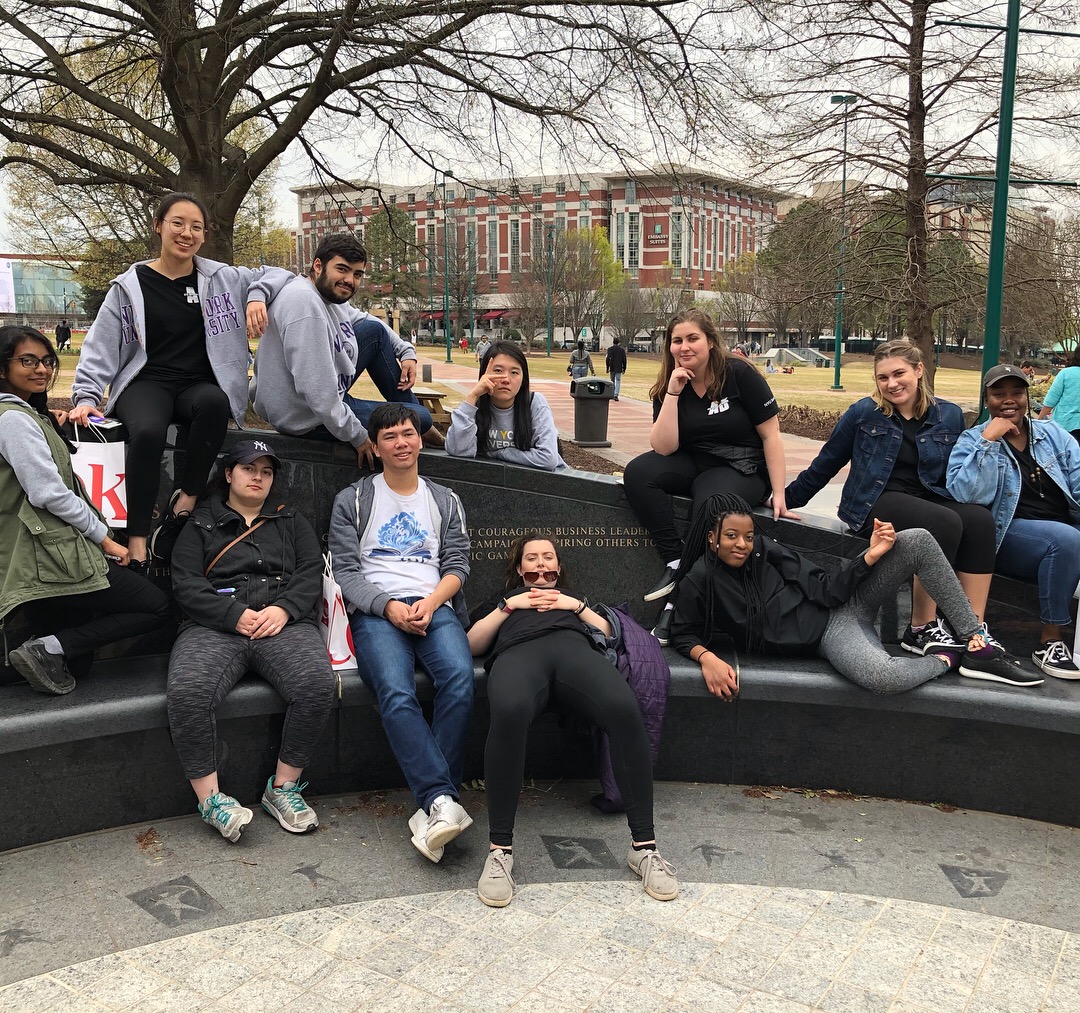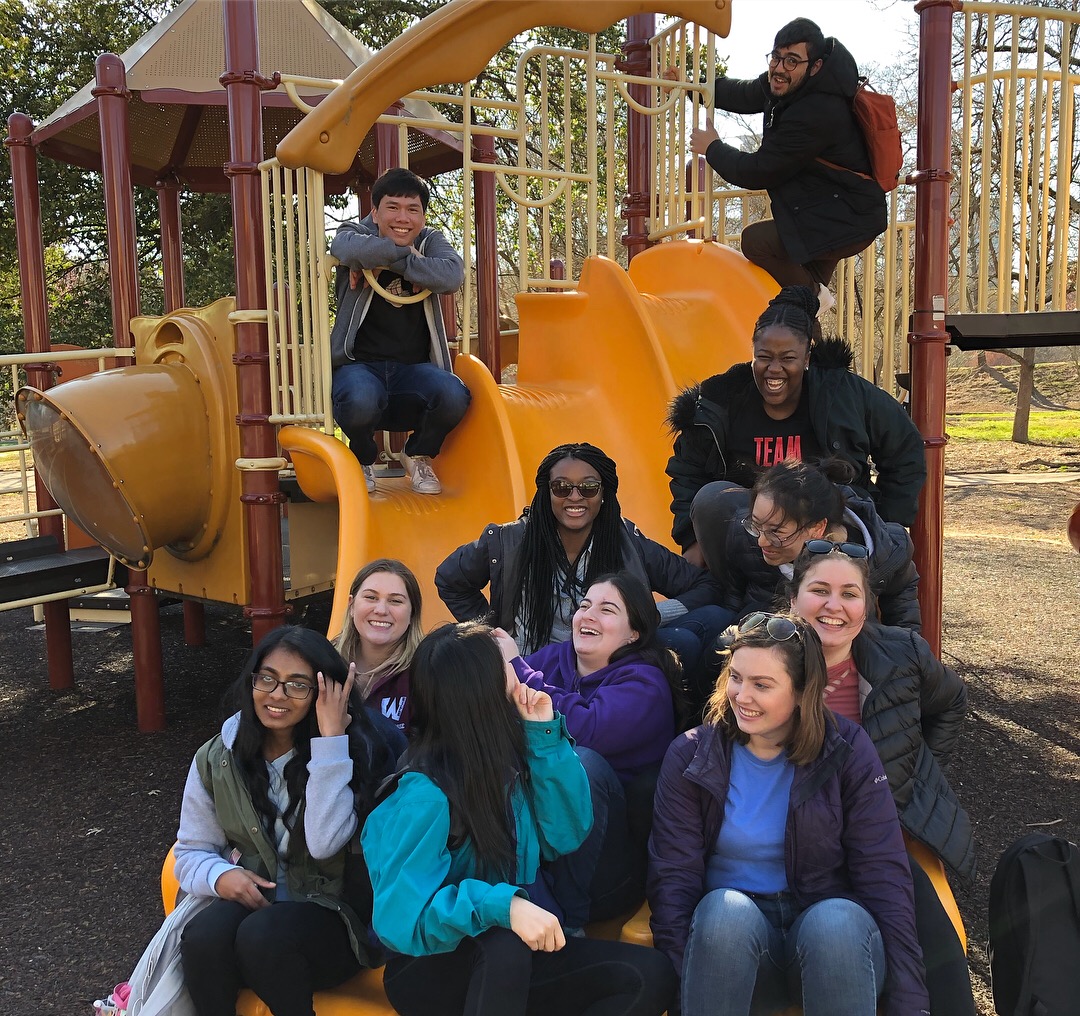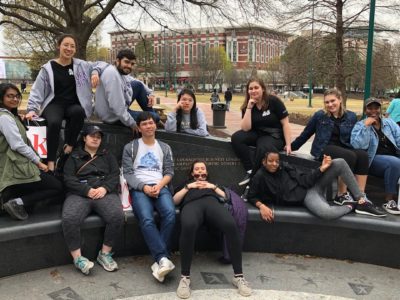You never know where college is going to take you. For me, it took me to Clarkston, Georgia.
I knew that college would give me plenty of opportunities to give back. Being in New York City, I wanted to take advantage of every possibility I had to make a difference.
So when I went to my first service fair at New York University, I came across a club called Alternative Breaks, where students surrendered part of their winter or spring break to go to a city or town and help out on various service projects. I went back to my dorm and applied.
Those leading application process seemed very aware that many students use service trips as a way to go on vacation. To combat this, when you applied you choose three social issues that you were involved in. When you were accepted, they placed you in a site accordingly, based on your preferences and price restrictions.
Service trips are not a vacation.
They also are not free. My club fundraised to lower the cost of our trip. I asked my friends and family for donations, but I still needed to pay for a portion of the trip and bring money while there for food and other necessities. Not only are you giving up your time, but you will also give up money and other resources.
Besides a desire to give back, I also saw this opportunity as a way to make friends. I applied, I interviewed and I got accepted to Clarkston, Georgia. I would spend my spring break week there with 12 strangers. Needless to say, my mother worried.
My group met a few times before our trip to discuss our social issue—human rights and children’s education—though most of the details were given to us very close to the date of our departure. I did not know exactly what we were going to do. I had no choice but to prepare for anything.
March of last year, I woke up at 4 a.m. and boarded a plane, hoping for a good week. I arrived in Clarkston, Georgia with my new roommates for the week with speculation and excitement. We were staying in an Airbnb.
Flexibility is very important when going on a service trip. You may end up sleeping on the floor of a church or in a queen-sized bed with two other travelers that you met that day. We cooked our food, packed our lunch and shopped for our groceries. Soon after settling in, our service began.
We worked with a specific organization while in Clarkston that hosted these college service trips. Many refugees get resettled when applying for transfer to the United States in Clarkston, making it the most diverse square mile of the whole country. Men, women and children from different countries overseas call Clarkston, Georgia their home.
Our trip taught us about the pleas of refugees overseas and in Georgia. We viewed films, had discussions and attended training for concepts such as diversity and Martin Luther King Jr.’s nonviolence principals. We went to local museums and restaurants to become acquainted with the area.

This focus on learning, though extremely helpful, lent little time for actual service. We spent about three days doing actual service in the areas. I think I speak for my entire group when I say that these made the most influential days of the trip.
We spent a lot of time in elementary schools. These schools housed children of refugee families as well as locals. One of the days, we sat in on classes and helped the teacher any way we could.
I sat in on a preschool special needs class for half of the day. Each child required different things and the three teachers struggled to meet these various needs. On top of the special needs of the children, many struggled with being in a strange country whose language and customs they didn’t understand. The second half of the day I graded the papers of fourth-grade students.
One day we helped at an after-school program at one of the international schools in Clarkston. I start in the gym where the students were encouraged to blow off some steam. Some students immediately adopted me into a game of tag. I stayed with this friend group throughout my time there. One specific girl held my hand and sat next to me the whole time. I ate snacks with the kids. I asked them where they came from, hearing a variety of answers. Almost all of the kids spoke more than one language. One little boy drew a picture of me.
When it came time to leave, I seemed noticeably more upset than the kids. What I failed to realize that soon enough they would have another group of college students doing the exact same thing I did. My friend would adopt a new teenage girl to become her friend.
In a few hours, I would be forgotten.
I learned a hard truth about service trips and the brevity of the impact I caused. I didn’t build a house or repair a school. So I didn’t see the lasting effects of my time in Clarkston. I’m honestly unsure of the degree of my impact there. For that, I am disappointed in my experience.
In every other aspect, I am very thankful and grateful for my decision to go. I made new friends there, Three of my closest friends to this day went on this journey with me. I met a group of kind, like-minded people who wanted to make a difference. I developed a relationship with an amazing staff member at my university.

Every night of the trip, my service group got together to discuss our days. One night, I broke down because of the love and community I felt in that room. Genuinely, I would not change that experience for the world.
Despite feeling unfulfilled in some aspects of my experience, I don’t view service trips negatively. I think they are a great opportunity to make friends and step outside of your comfort zones. I hope to go on more in my life. However, I did learn that very little can happen in a week’s time in an unfamiliar place.
This taught me the importance of volunteering and getting involved in my own community, where I can dedicate more time and see my work’s lasting impact. I know other groups felt fulfilled with their service and cannot speak to their experiences here.
Every trip is different. Go into it with an open mind, as little expectation as possible and find a way to help.



















